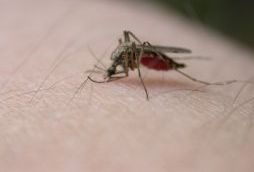Dr Michelle Wykes and her team from QIMR have recently published new findings demonstrating how the malaria parasite can survive in a type of white blood cell in the spleen.
Traditionally, it was believed the parasite’s development in the body was restricted to the liver and red blood cells.
Dr Wykes’ research, undertaken over several years, provides a major breakthrough in our understanding of the malaria parasites.
Dr Wykes said the findings open up a whole new approach to developing drugs and vaccines targeting the infection in the spleen.
"Our research has discovered how white blood cells called dendritic cells, malfunction and shield the malaria parasite from the body’s immune attack.
"Dendritic cells normally function like generals of an army, giving orders to the body’s immune cells to fight infection,"Dr Wykes said.
"The system usually works brilliantly. However, the problem with malaria is that the disease has found a way to block dendritic cells from doing their work, meaning that the disease over-rides our immune responses. And therefore, people get sick."
Dr Wykes was awarded a $300,000 Queensland Government Smart State fellowship in 2010 to assist her research.
"The fellowship has enabled me to progress my research and without it I wouldn’t have been able to deliver these new findings which are a major step in fighting the global problem of malaria,"Dr Wykes said.
The findings were published in the prestigious scientific journal Proceedings of the National Academy of Sciences of the United States of America.
Malaria affects more than 200 million people worldwide, causing nearly 800,000 deaths per year, mostly young children under five.
The World Health Organisation states most deaths occur in Africa where a child dies of malaria every 45 seconds and the disease accounts for approximately 20 percent of all childhood deaths.
Australia is not immune with approximately 600 cases reported here annually, mostly people who have been travelling overseas in malaria-affected countries, with Queenslanders accounting for approximately one-third of these cases.
This year malaria infections were also recorded in the Torres Strait.
Climate change could have the potential to create conditions that promote the spread of malaria infected mosquitoes into tropical Queensland.
The QIMR is one of Australia’s largest and most successful medical research institutes, with researchers investigating the genetic and environmental causes of more than 40 diseases as well as developing new diagnostics, better treatments and prevention strategies.
The QIMR are partners in the Queensland Tropical Health Alliance (QTHA) with James Cook University, the Queensland University of Technology and Griffith University, with the aim of improving the detection, diagnosis and treatment of tropical diseases.
The Queensland Government contributed more than $19 million in infrastructure funding to expand tropical health research and establish the QTHA as a world-class integrated tropical health and medical research network.










-160x160-state_article-rel-cat.png)


-160x160-state_article-rel-cat.png)









